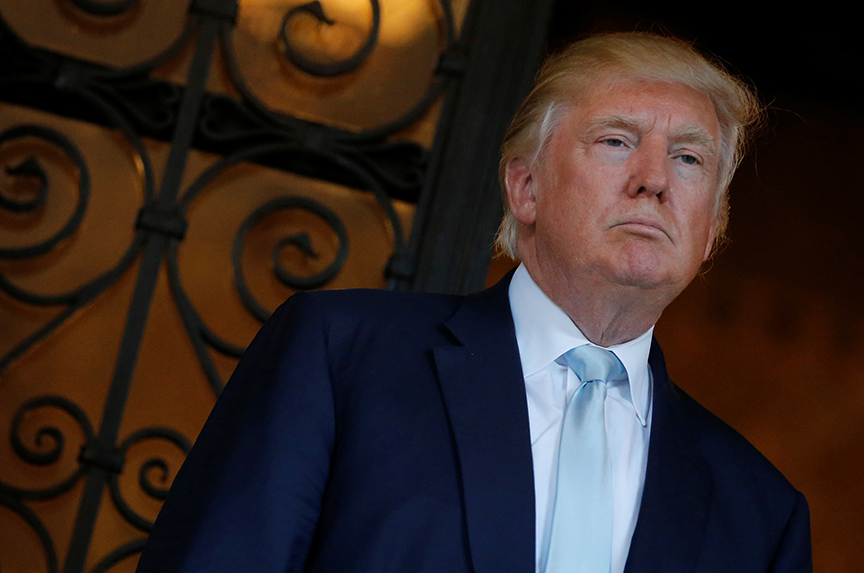Dan Steinbock, Founder, Difference Group
Jan 13, 2017
As long-needed economic reforms are taking off in the Philippines, regime change plans have been prepared in the U.S. State Department against a democratically-elected president who enjoys very high popular support.
Richard Weitz, Senior Fellow, Hudson Institute
Jan 13, 2017
This year could see a major shakeup in the China-U.S. interaction in Afghanistan and Central Asia. Until now, the relationships in these regions between China and the United States, and between China and Russia, has been better than the Russian-American rivalry in Central Asia. But if the new Trump administration succeeds in improving Russian-U.S. relations, or decides to cut back on the U.S. military commitment in Afghanistan, China’s bargaining leverage vis-à-vis Russia in Central Asia will decline.
Ted Galen Carpenter, Senior Fellow, Randolph Bourne Institute
Jan 13, 2017
Neither China nor the United States should rationally wish to see a confrontation develop with a crucial economic partner. But we should also be aware of the limits of economic links as a restraining factor. For the first time since the rapprochement that Richard Nixon and Henry Kissinger orchestrated in the early 1970s, an incoming U.S. president seems to be considering translating the China-bashing rhetoric of a presidential campaign into actual policy.
Robert I. Rotberg, Founding Director of Program on Intrastate Conflict, Harvard Kennedy School
Jan 12, 2017
With São Tomé’s shift, only twenty-one members of the United Nations are still linked to Taiwan. China promises to build roads throughout the two islands and construct markets, shopping centers, and other commercial facilities.
Zheng Yu, Professor, Chinese Academy of Social Sciences
Jan 12, 2017
The Trump administration may exert unprecedented strategic pressures on China against the background of continuous implementation of the pivot to the Asia-Pacific. But that is unlikely to boost the US economy for many reasons, and the Republicans’ realist diplomatic philosophy and Trump’s businessman’s pragmatism make it possible for reversals in the next US government’s aggressive China policies.
Chen Xiangyang, Director and Research Professor, CICIR
Jan 11, 2017
The world was shaken up last year by events from populist movements to terrorism to shifting alliances. How major powers react to this volatility – and to each other – will determine if 2017 extends the chaos or shapes a new world order.

Ashish Kumar Sen, Deputy Director of Communications, Atlantic Council
Robert Manning, Senior Fellow, Brent Scowcroft Center of Atlantic Council
Jan 11, 2017
China could retaliate in several ways that would cause serious damage to the United States if President-elect Donald Trump were to overplay his hand with the Asian nation, according to an Asia expert at the Atlantic Council.
Yin Chengde, Research Fellow, China Foundation for International Studies
Jan 10, 2017
Despite late sparks from US President-elect Trump, China’s relations with the US, Russia, Europe, Latin America and its Asian neighbors all improved during the year, with promise for long-term stability.
Jared McKinney, PhD student, S. Rajaratnam School of International Studies
Jan 05, 2017
Chinese sources have attempted to explain the seizure of a U.S. Unmanned Underwater Vehicle (UUV) with reference to maritime safety or protests over U.S. military reconnaissance in and around Chinese waters. China seized the drone to send a signal to President-elect Donald Trump that China wasn’t going to play around with any threats to the One China Principle, which Trump threatened by calling Taiwan President Tsai Ing-wen. However, there is no need for abrupt action right now that alienates president-elect Trump and his advisors. China’s economic and global clout gives it the influence it needs to preserve its “core” interests in international society, and China’s true power doesn’t derive from its ability to pull a U.S. UUV out of the water; it comes from its regional and global economic influence.
Wu Zurong, Research Fellow, China Foundation for Int'l Studies
Jan 05, 2017
By showcasing China’s traditional pursuit of win-win cooperation and a community of common destiny for mankind, Beijing can counter the absurd flurry of books, research papers, political fantasies and imaginary fictions produced by Cold War thinkers in the U.S. to paint China as a villain or a war-monger that is hostile to the U.S.
Back to Top

- China-US Focus builds trust and understanding between the U.S. and China through open dialogue among thought leaders.
- Our Offerings
- Topics
- Videos
- Podcasts
- Columnists
- Research Reports
- Focus Digest
- Stay Connected
-
Thanks for signing up!
- Get the latest stories from China-US Focus weekly.